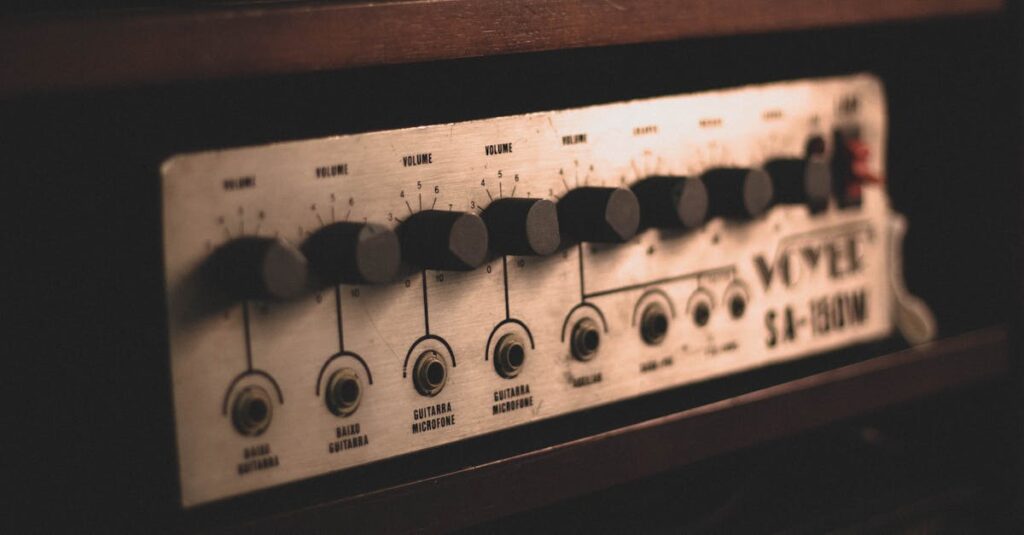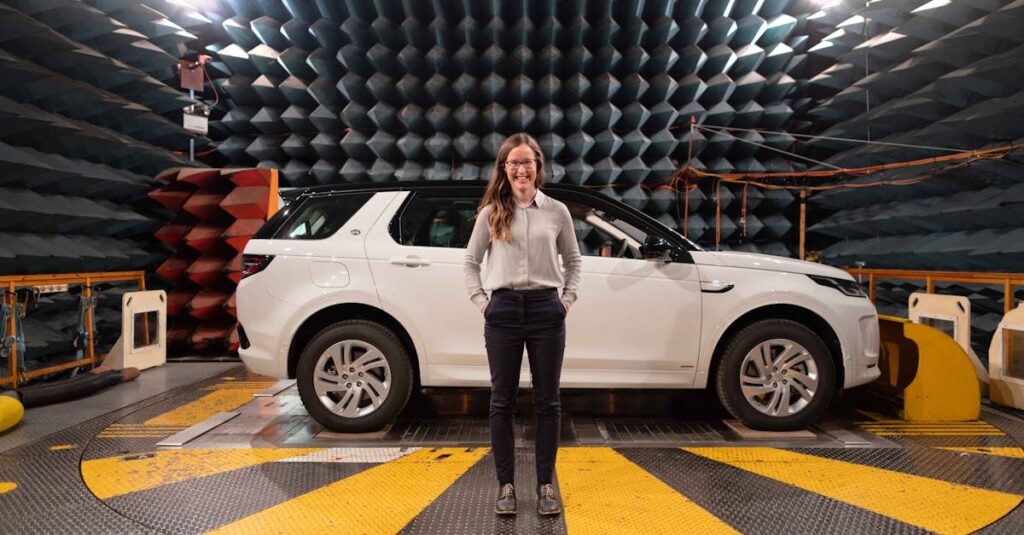In a world where technology permeates every aspect of life, plumbing is no exception. Hi-tech plumbing is revolutionizing the way homeowners and businesses manage their water systems, making them more efficient and environmentally friendly. With smart sensors, automated systems, and advanced materials, this modern approach addresses common plumbing issues while enhancing convenience and sustainability.
As consumers seek innovative solutions to everyday problems, hi-tech plumbing offers a glimpse into the future. From leak detection systems that alert homeowners to potential issues before they escalate, to smart water heaters that optimize energy use, these advancements not only save money but also contribute to a greener planet. Embracing this technology can transform traditional plumbing into a seamless, hassle-free experience.
Hi Tech Plumbing
Hi-tech plumbing significantly enhances modern water management for homeowners and businesses. Smart sensors, automated systems, and innovative materials play crucial roles in increasing plumbing efficiency and promoting environmental sustainability. These advancements enable proactive leak detection and diagnostics, preventing costly issues and extensive repairs.
Smart water heaters exemplify technology’s benefits in plumbing. These devices automatically adjust water temperature based on usage patterns, conserving energy and reducing utility costs. Leak detection systems constantly monitor water flow, notifying homeowners instantly about potential problems.
Additionally, advanced materials such as PEX and PVC contribute to improved plumbing systems. These materials typically resist corrosion, enhancing durability and longevity. The impact of hi-tech plumbing extends beyond convenience; it fosters a more efficient and sustainable approach to water management, ensuring accessibility for future generations.
Key Features of Hi Tech Plumbing
Hi tech plumbing incorporates advanced technologies and materials, enhancing efficiency and sustainability in water management systems. Key features include smart technology integration and innovative water conservation techniques.
Smart Technology Integration
Smart technology integration in plumbing systems includes devices like smart sensors, leak detection systems, and automated valves. Smart sensors monitor water usage in real-time, identifying leaks and unusual consumption patterns. Automated systems adjust flows based on demand, promoting energy efficiency. Smart water heaters optimize temperatures based on habits, significantly reducing energy expenditure. Together, these technologies provide homeowners and businesses detailed insights into their water usage, allowing for proactive maintenance and cost savings.
Water Conservation Techniques
Water conservation techniques focus on minimizing wastage through advanced systems and technologies. Low-flow fixtures, such as faucets and showerheads, reduce water flow without sacrificing performance. Dual-flush toilets optimize water usage based on needs, using less for liquid waste and more for solid waste. Rainwater harvesting systems capture and store rainwater for non-potable use, decreasing reliance on municipal supply. Irrigation systems equipped with moisture sensors adjust watering schedules based on soil moisture levels, preventing overwatering. These innovative methods contribute to sustainable water management, benefiting both the environment and utility expenses.
Benefits of Hi Tech Plumbing
Hi-tech plumbing offers significant advantages for both residential and commercial settings. These benefits include enhanced efficiency and cost savings, transforming how water management operates.
Enhanced Efficiency
Enhanced efficiency is a core benefit of hi-tech plumbing. Smart sensors monitor real-time water usage, quickly identifying leaks and unusual patterns. Automated systems adjust water flow based on demand, optimizing consumption. Innovative fixtures like low-flow toilets and faucets require less water without sacrificing performance. Furthermore, systems that harness rainwater and smart irrigation techniques maximize resource use, minimizing waste. Overall, these advancements contribute to a more responsive and efficient plumbing infrastructure.
Cost Savings
Cost savings play a pivotal role in encouraging the adoption of hi-tech plumbing. Leak detection systems prevent water waste, reducing utility bills significantly. Smart water heaters adjust to user habits, limiting energy consumption while maintaining comfort. Long-lasting materials like PEX and PVC resist corrosion and require fewer repairs, cutting maintenance costs over time. Incorporating dual-flush toilets and efficient fixtures decreases overall water usage, which translates to lower water bills. Together, these innovations not only lower immediate expenses but also enhance long-term financial sustainability.
Comparison with Traditional Plumbing
Hi-tech plumbing systems fundamentally differ from traditional plumbing approaches in multiple aspects, including installation processes and maintenance requirements.
Installation Process
Hi-tech plumbing installations often involve more advanced techniques than traditional plumbing. Integrating components like smart sensors and automated systems requires precise planning and skilled labor. These systems utilize modular designs, simplifying both installation and future enhancements. Traditional plumbing focuses mainly on physical connections and piping, which can complicate repairs or upgrades. The use of modern materials such as PEX and PVC, which are lightweight and flexible, allows for quicker installations, reducing labor time and costs compared to conventional copper or galvanized piping systems.
Maintenance Requirements
Hi-tech plumbing systems exhibit reduced maintenance demands relative to traditional techniques. Smart technology alerts homeowners and businesses about potential issues, such as leaks or irregular water usage trends, enabling proactive measures. This attribute contrasts sharply with traditional plumbing, where preventative maintenance often depends on regular inspections and manual checks. Moreover, advanced materials used in hi-tech plumbing resist corrosion and degradation, leading to longer lifespans with minimal upkeep. Traditional systems frequently endure wear and tear, leading to costly repairs. Thus, while the initial investment in hi-tech plumbing may be higher, the long-term savings through lower maintenance costs support its growing popularity.
Future Trends in Hi Tech Plumbing
In the ever-evolving landscape of hi-tech plumbing, several trends are emerging that promise to reshape the industry and enhance water management capabilities.
Smart Water Management Systems
Smart water management systems lead the way with integrated technology that allows users to monitor and control water usage remotely. These systems use data analytics to provide insights into consumption patterns, helping users make informed decisions about water usage. Real-time notifications alert homeowners and businesses about leaks or anomalies, enabling prompt action to prevent water damage.
Advanced Leak Detection Technologies
Advanced leak detection technologies are becoming increasingly sophisticated. Ultrasonic sensors and acoustic monitoring systems can pinpoint leaks with high accuracy, even in hard-to-reach pipes. These technologies not only save water but also reduce the costs associated with water damage repairs and high utility bills.
Artificial Intelligence and Machine Learning
Artificial intelligence (AI) and machine learning are transforming plumbing diagnostics. Predictive maintenance models analyze data from various sensors to forecast potential failures before they occur. This proactive approach minimizes disruptions and extends the lifespan of plumbing systems.
Sustainable Solutions
Sustainable solutions dominate future trends in hi-tech plumbing. Innovations such as greywater recycling systems and solar-powered water heaters contribute to improved resource management. These technologies reduce the overall environmental impact of plumbing systems, aligning with the growing emphasis on sustainability in construction and renovation projects.
Increased Automation
Increased automation features in plumbing systems streamline routine operations. Automated shutoff valves activate during emergencies, protecting property from flooding. Additionally, smart irrigation systems adjust watering schedules based on weather forecasts, conserving water while maintaining landscape health.
Integration with Smart Home Systems
Integration with smart home systems is a significant trend in hi-tech plumbing. Appliances like smart dishwashers and washing machines sync with plumbing systems to optimize water and energy use. This seamless ecosystem enables homeowners to manage their appliances and plumbing functionality through a single interface.
Use of Innovative Materials
The use of innovative materials such as cross-linked polyethylene (PEX) and flexible PVC gains traction. These materials enhance the durability and flexibility of plumbing systems, making installations easier and reducing the potential for damage.
Emphasis on User-Friendly Interfaces
An emphasis on user-friendly interfaces in plumbing technology enhances accessibility. Mobile applications allow users to navigate plumbing systems, set preferences, and monitor systems easily. This trend encourages broader adoption of hi-tech solutions by making them more approachable for users.
These emerging trends in hi-tech plumbing highlight a shift toward greater efficiency, sustainability, and user empowerment in water management systems. As technology continues to advance, the plumbing industry will likely experience significant transformations that benefit both users and the environment.
Sustainability
Hi-tech plumbing represents a significant leap forward in water management. By integrating smart technology and innovative materials, it not only enhances efficiency but also promotes sustainability. Homeowners and businesses alike can benefit from features like real-time monitoring and automated systems that minimize waste and reduce costs.
As the industry continues to evolve, the future looks promising with advancements in predictive maintenance and water conservation methods. Embracing these technologies ensures a more efficient and environmentally friendly approach to plumbing. Ultimately, hi-tech plumbing paves the way for a smarter and more sustainable future in water management.



